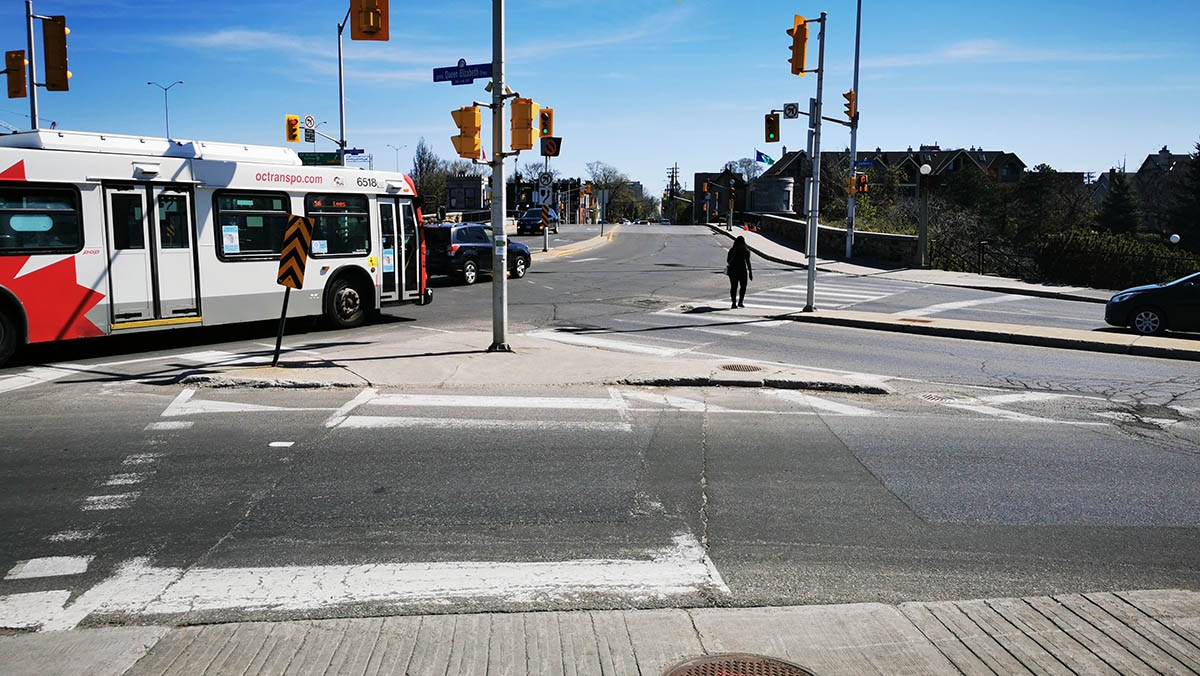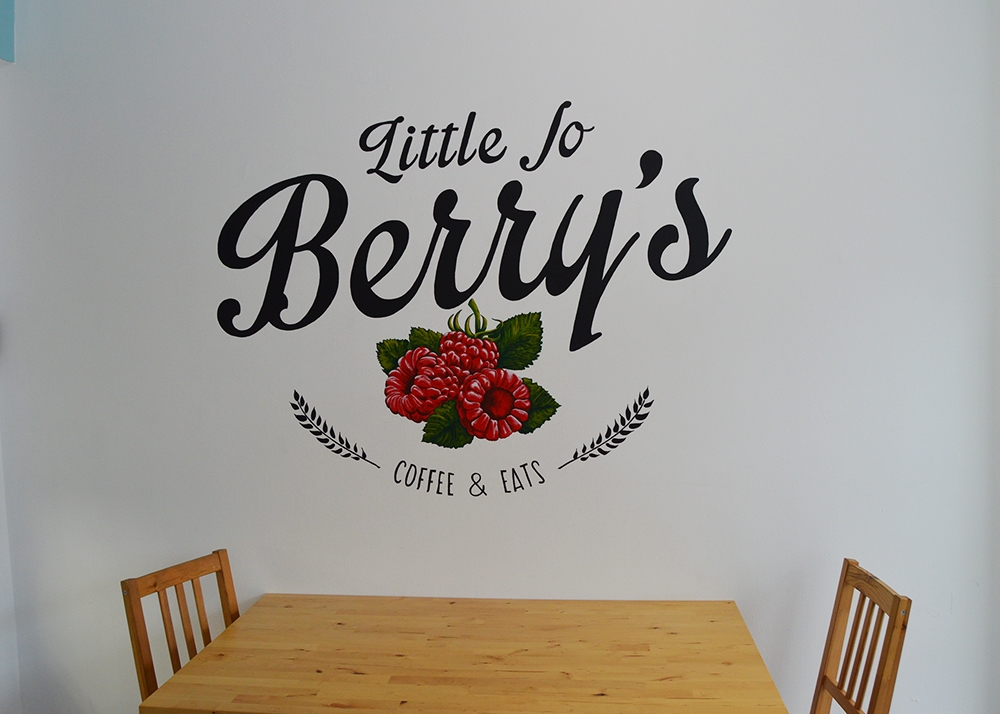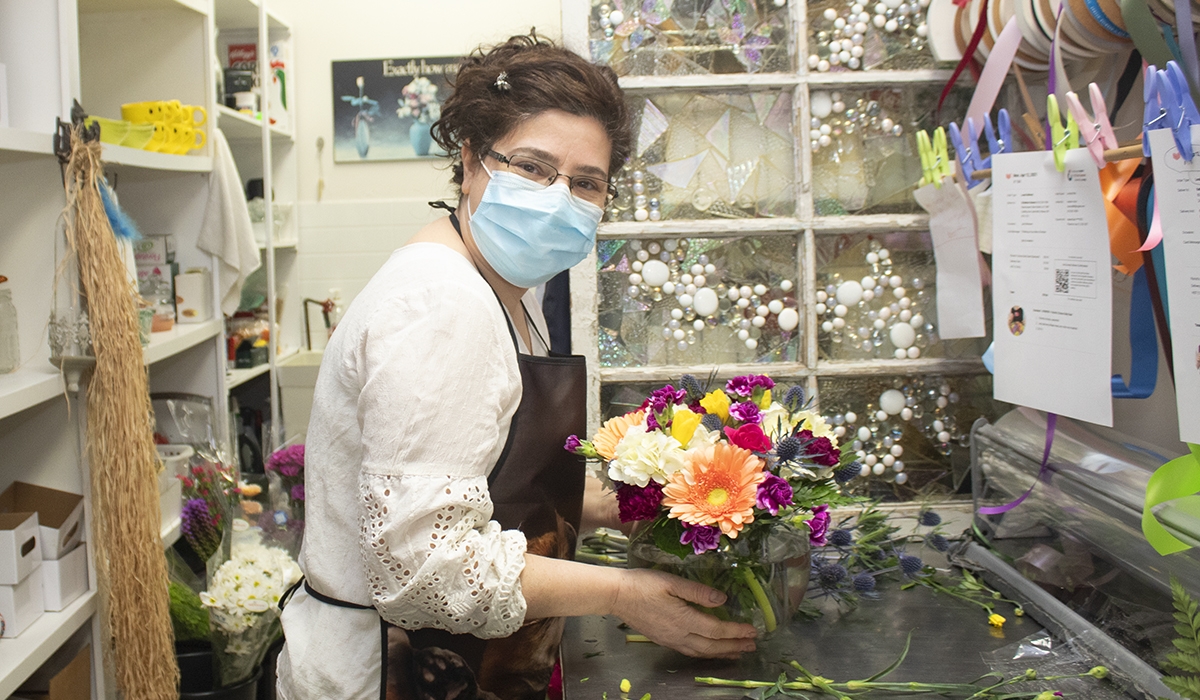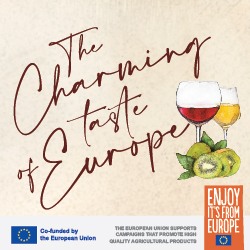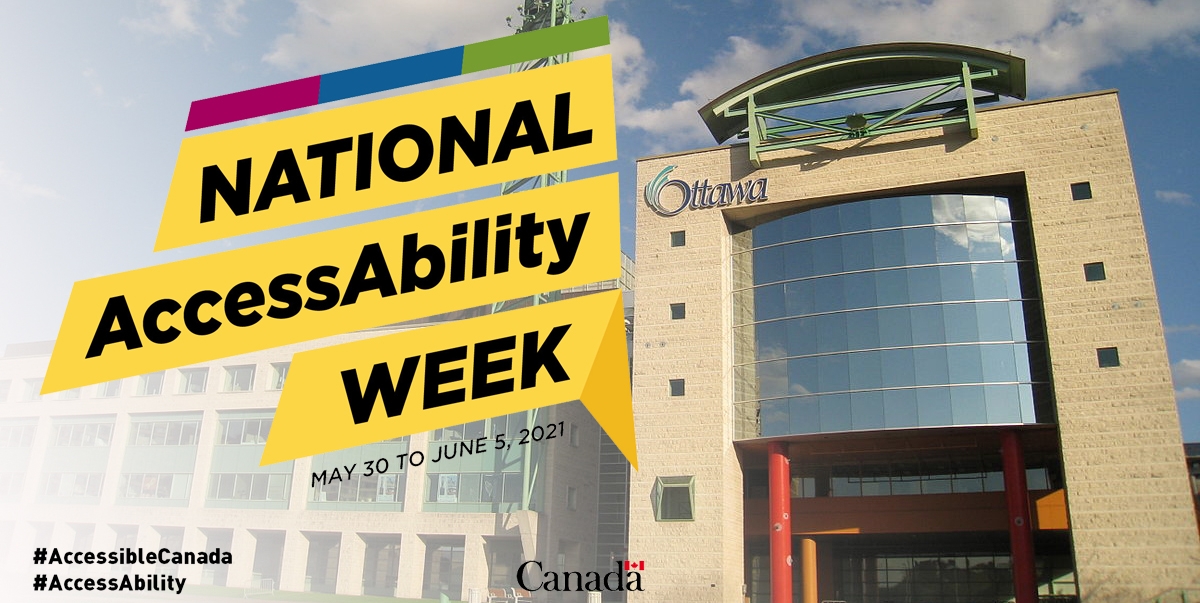
Accessibility shouldn’t just be an annual topic of conversation.
It’s a daily problem that needs to be addressed & fixed.
Tis’ the season to talk about accessibility.
This week is National AccessAbility Week. (May 30 – June 5, 2021)
Each year we celebrate
- the valuable contributions of Canadians with disabilities.
- the accomplishments of individuals, communities and workplaces to remove barriers to accessibility and inclusion, and
- the ongoing work we all have to do to counter discrimination against persons with disabilities and promote a culture of inclusion.
For more information, please visit https://www.canada.ca/en/employment-social-development/campaigns/national-accessability-week.html?fbclid=IwAR2YplGb5prJPme6njHTiU_Kbrq7azsaYzTdm7GNwv96h3p8637L-LQH_pI
On May 27th, it was AccessAbility Day in Ottawa. While I wasn’t able to attend this year’s virtual celebrations, I’ve attended several of them over the years at City Hall.
Most of the day consists of panel discussions regarding programs and services for people with disabilities. For me, very little typically applies to me. When I attend, it’s mainly to see what’s being discussed and see if there’s anything new that may apply to my disability or things that I could get involved with. Also, it’s a good way for me to see some of my friends and meet others.
Now, what about to tell you may shock you.
At this point, I’m tired of talking about accessibility.
I’m not referring to this space here. I can do this for many more years if they let me.
As far as sitting in a room as part of sharing ideas about how a business or organization can become more accessible or to just be accessible, I’m not interested.
Over the years, I’ve attended many planning committees that were related to accessibility in some way.
At some, they’d be all fired up and eager, then they’d slow down and fizzle away. Other groups sometimes just sit there and completely ignore your ideas, or worse, they say yes, but lie in doing so.
A good example of this is Bluesfest.
I’m sure I’ve told this story here before, but it fits with this.
When Bluesfest moved from City Hall to Lebreton Flats, I approached them to see if they were interested in becoming more wheelchair accessible. They agreed to meet with me, and I told them that they should install a raised platform so that people using wheelchairs or similar devices could see the show over the crowd.
The first year was a major hit. Tons of people were enjoying it, and several media outlets picked up the story. It was a huge success for everyone.
As the years went by, Bluesfest pushed the platform aside, quite literally. Each year, they position the platform further back and way off to the side of the side. Instead of facing the stage, we’re facing the far right part of the crowd, and the sun is hitting us directly during sunset.
As an FYI, the platform was still drawing people in 2019 but seemed far less. I can say for sure that there have been several complaints to Bluesfest, but nothing has changed. I also made other suggestions to them, but no avail.
After several years of being ignored, I stopped working at Bluesfest.
I would much instead share my suggestions with people that will listen, or in this case, read.
As far as Ottawa, though.
Their definition of accessibility is largely a joke, but I’m not laughing—quite the opposite to be honest. Again, to be honest, it seems to me that Ottawa has become less accessible.
While it’s true that the LRT is much more accessible for me and others to get on & off than an OC Transpo bus, what if you don’t live near an LRT stop? Or you arrive at a stop and find out the elevator’s broken?
Then there are the small businesses.
Last week, there were discussions on Social Media about businesses not allowing people to use their bathrooms.
I should also mention the NCC. Better known as the National Capital Commission.
Like last year, certain streets in Ottawa are blocked off to vehicles, so residents have more space to ride their bikes, scooters, e-scooters, wheelchairs etc.
Wait!
Wheelchairs?
Yes, wheelchairs!
People with disabilities use wheelchairs for more than just sitting and freaking out some people.
We also use them to get from point A to point B, and if it’s a sunny day, or we have things to do, point A becomes the beginning of multiple points.
Along the way, on these closed-off streets, there are port-o-potties, but none are wheelchair accessible. Some of them have stickers indicating that a wheelchair can fit; it doesn’t mean all wheelchairs fit. Typically, the only type of wheelchairs that do work are the smaller ones that Para Athletes use.
Those bathrooms aren’t made for people in power chairs, especially if they need another person to assist them in the bathroom.
The NCC has NOT considered that and continues to ignore the many people that have reached out.
I had a very similar issue when Bank Street was closed off. It took me several weeks to convince the BIA to install accessible port-o-potties. When they finally did, their idea of “accessible” was very different than mine.
So, Ottawa…
If YOU want to have discussions about accessibility, please make sure you can listen and DO something about it.
Ottawa is Canada’s capital. As the capital of Canada, we need to be doing more to represent our country and the people of Canada.
When you include accessibility, you’re truly including everyone.

